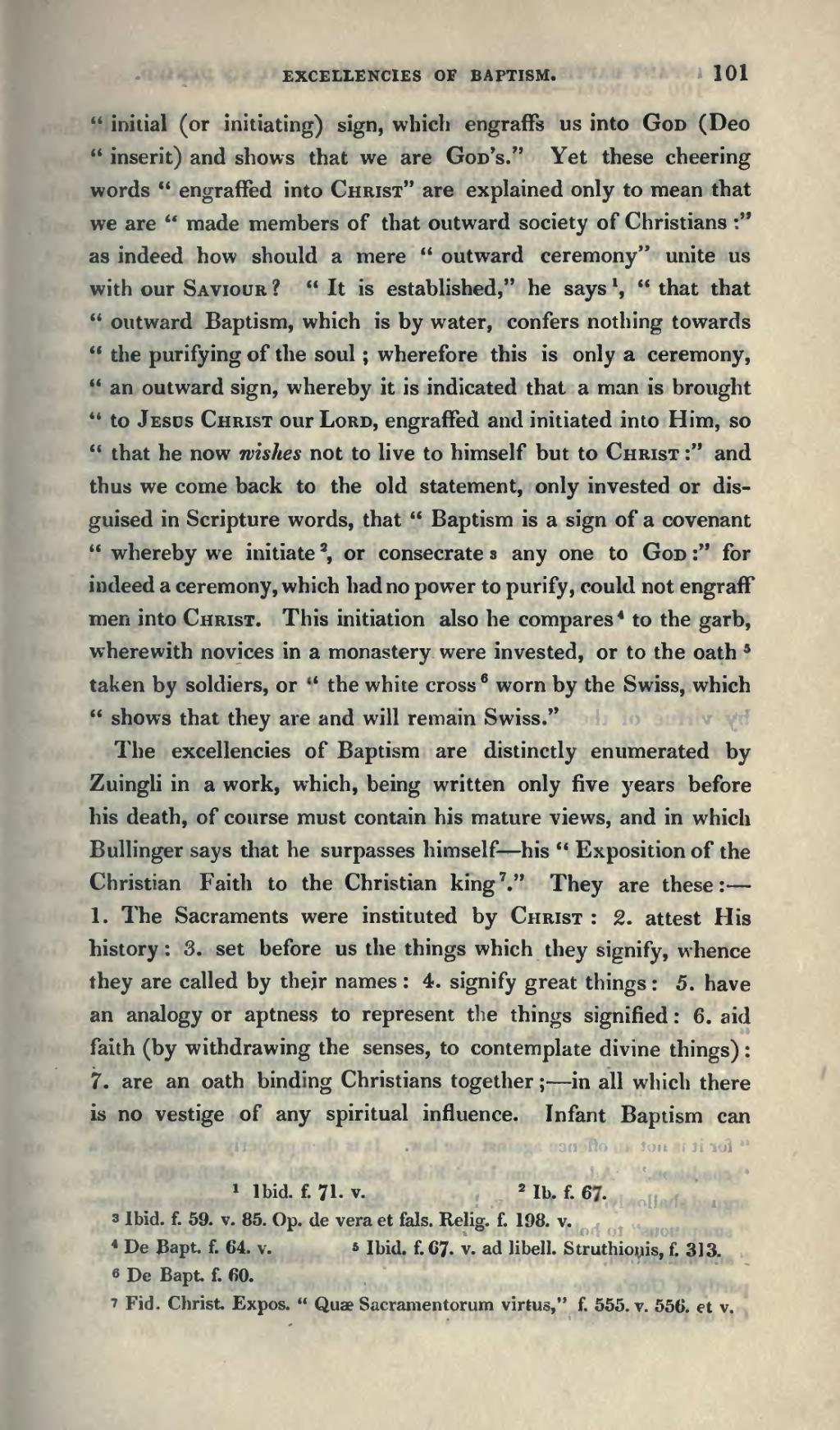initial (or initiating) sign, which engraffs us into God (Deo inserit) and shows that we are God's." Yet these cheering words "engraffed into Christ" are explained only to mean that we are "made members of that outward society of Christians:" as indeed how should a mere "outward ceremony" unite us with our Saviour? "It is established," he says[1], "that that outward Baptism, which is by water, confers nothing towards the purifying of the soul; wherefore this is only a ceremony, an outward sign, whereby it is indicated that a man is brought to Jesus Christ our Lord, engraffed and initiated into Him, so that he now wishes not to live to himself but to Christ:" and thus we come back to the old statement, only invested or disguised in Scripture words, that "Baptism is a sign of a covenant whereby we initiate[2], or consecrate[3] any one to God:" for indeed a ceremony, which had no power to purify, could not engraff men into Christ. This initiation also he compares[4] to the garb, wherewith novices in a monastery were invested, or to the oath[5] taken by soldiers, or "the white cross[6] worn by the Swiss, which shows that they are and will remain Swiss."
The excellencies of Baptism are distinctly enumerated by Zuingli in a work, which, being written only five years before his death, of course must contain his mature views, and in which Bullinger says that he surpasses himself—his "Exposition of the Christian Faith to the Christian king[7]." They are these:—1. The Sacraments were instituted by Christ: 2. attest His history: 3. set before us the things which they signify, whence they are called by their names: 4. signify great things: 5. have an analogy or aptness to represent the things signified: 6. aid faith (by withdrawing the senses, to contemplate divine things): 7. are an oath binding Christians together;—in all which there is no vestige of any spiritual influence. Infant Baptism can
